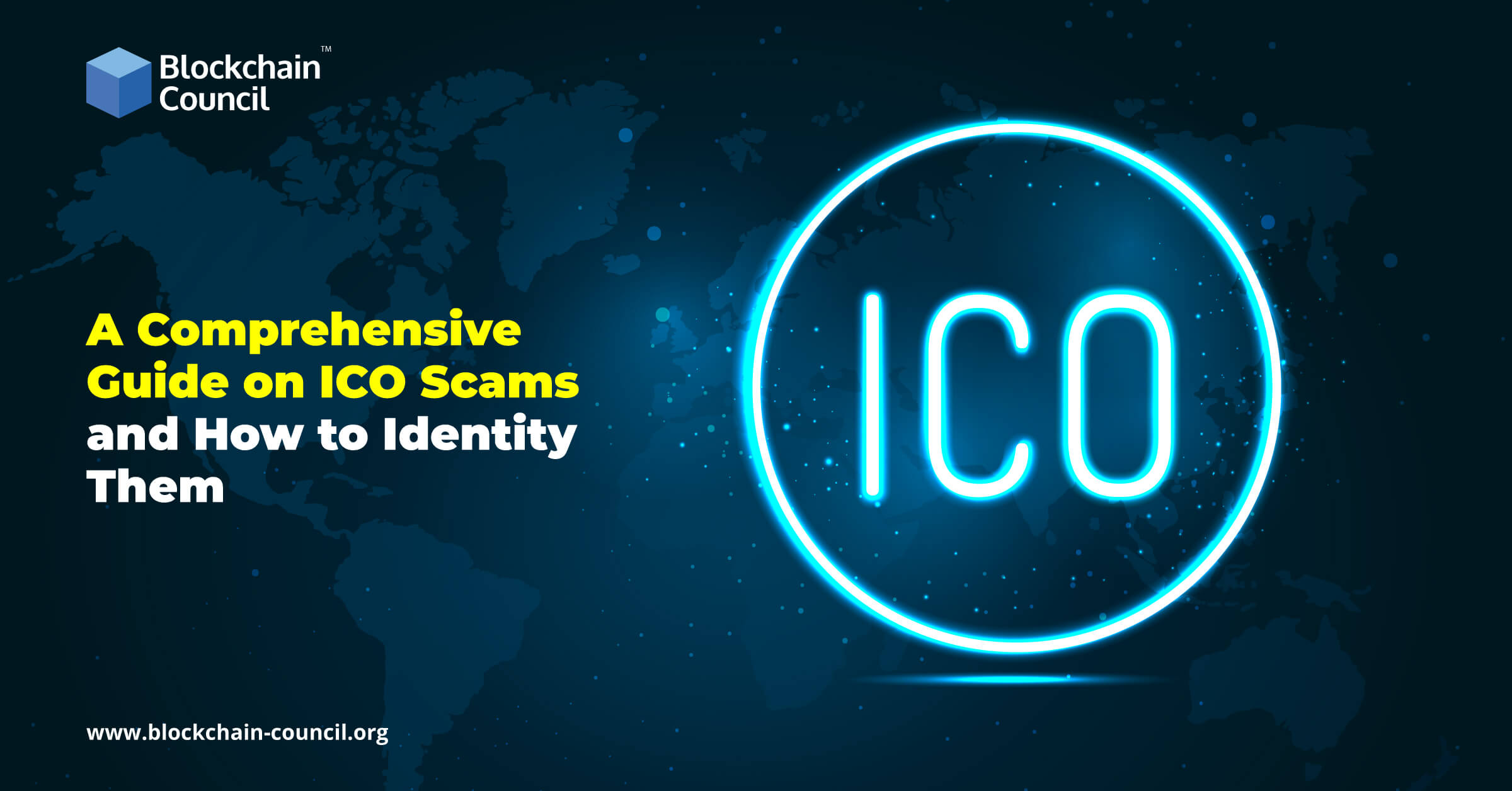How to Spot a Fake ICO (Initial Coin Offering)

- Understanding the basics of ICOs
- Common signs of a fake ICO
- Researching the team behind the ICO
- Analyzing the whitepaper for red flags
- Checking for a working prototype or product
- Consulting with experts in the cryptocurrency industry
Understanding the basics of ICOs
Understanding the basics of ICOs is crucial when trying to spot a fake Initial Coin Offering. An ICO is a fundraising method that involves issuing a new cryptocurrency in exchange for investment. It is typically used by startups to bypass the rigorous and regulated capital-raising process required by venture capitalists or banks. Investors can purchase these new tokens with existing cryptocurrencies like Bitcoin or Ethereum.
During an ICO, a company creates a certain amount of a new cryptocurrency and sells these tokens to investors in exchange for either fiat currency or other cryptocurrencies. The tokens are then used within the company’s ecosystem, giving investors access to a product or service that the company is developing. However, it’s important to note that not all ICOs are legitimate, and there are many fake ICOs out there looking to scam unsuspecting investors.
One way to spot a fake ICO is by looking at the team behind the project. A legitimate ICO will have a team of experienced professionals with a track record of success in the industry. If the team members have no prior experience or their credentials cannot be verified, it could be a red flag that the ICO is fake. Additionally, it’s important to research the company’s whitepaper, which outlines the project’s goals, timeline, and how the funds raised will be used. A lack of a detailed whitepaper or one that is full of technical jargon without a clear explanation could indicate a fake ICO.
Common signs of a fake ICO
When evaluating an ICO, it is crucial to be aware of the common signs that may indicate a fake project. By being vigilant and conducting thorough research, investors can avoid falling victim to scams. Here are some key indicators to look out for:
- Unrealistic promises: If an ICO is promising guaranteed high returns with little to no risk, it is likely too good to be true. Be wary of projects that make extravagant claims without providing concrete evidence to back them up.
- Anonymous team: A legitimate ICO will have a transparent team with verifiable identities and relevant experience in the industry. If the team members are anonymous or have questionable backgrounds, it could be a red flag.
- Lack of a viable product: Before investing in an ICO, make sure to assess whether the project has a working prototype or a solid roadmap for development. Projects that lack a clear vision or product may be fraudulent.
- Plagiarized whitepaper: The whitepaper is a crucial document that outlines the project’s goals, technology, and roadmap. If an ICO’s whitepaper is plagiarized or lacks technical details, it could be a sign of a scam.
- Overemphasis on marketing: Some fake ICOs rely heavily on marketing tactics to attract investors, such as celebrity endorsements or aggressive advertising. Be cautious of projects that prioritize marketing over the actual development of the product.
By keeping an eye out for these warning signs and conducting thorough due diligence, investors can protect themselves from falling victim to fake ICOs. Remember to always do your own research and seek advice from trusted sources before making any investment decisions.
Researching the team behind the ICO
When researching the team behind an ICO, it is crucial to delve deep into their backgrounds and experience. Look for information about the team members on their website, social media profiles, and professional networking sites. Check if they have a history of successful projects in the blockchain or cryptocurrency space.
Verify the team’s credentials and qualifications to ensure they have the expertise needed to execute the ICO successfully. Look for team members with relevant experience in areas such as finance, technology, marketing, and legal compliance. A diverse team with a range of skills is more likely to navigate the complexities of launching an ICO.
Additionally, look for transparency in the team’s communication. Are they readily available to answer questions and address concerns? Do they provide regular updates on the progress of the ICO? Transparency is key in building trust with potential investors and can help distinguish a legitimate ICO from a fake one.
It is also essential to research the advisors and partners associated with the ICO. Advisors with a strong reputation in the industry can lend credibility to the project. Verify their involvement and look for any red flags that may indicate a lack of authenticity.
By thoroughly researching the team behind an ICO, investors can make more informed decisions and avoid falling victim to scams. Remember, due diligence is key when evaluating the legitimacy of an ICO.
Analyzing the whitepaper for red flags
When analyzing the whitepaper of an ICO, it is crucial to look for any red flags that may indicate a potential scam. One common red flag to watch out for is a lack of technical details or a vague description of the project. A legitimate ICO will provide in-depth information about the technology behind their project, including how it works and why it is innovative.
Another red flag to be aware of is unrealistic promises or guarantees of high returns. If the whitepaper makes claims that seem too good to be true, it is likely a sign that the project is not legitimate. Additionally, be wary of whitepapers that are poorly written or contain spelling and grammar errors. A professional and well-researched whitepaper is a good indication that the project is credible.
It is also important to research the team behind the ICO and ensure that they have the necessary experience and expertise to successfully launch the project. Look for information about the team members’ backgrounds, previous projects, and any relevant qualifications. If the team members have a history of failed projects or are not transparent about their identities, it is a major red flag.
In conclusion, analyzing the whitepaper for red flags is an essential step in determining the legitimacy of an ICO. By looking for inconsistencies, unrealistic promises, and lack of technical details, investors can protect themselves from falling victim to a fake ICO. Remember to always conduct thorough research and due diligence before investing in any project.
Checking for a working prototype or product
One crucial aspect to consider when evaluating an ICO is to check for a **working prototype** or product. This is a key indicator of the legitimacy and credibility of the project. A genuine ICO will have a **functional prototype** or product that demonstrates the team’s ability to deliver on their promises.
Investors should be wary of ICOs that only have a whitepaper or concept without any tangible product to show for. These could be potential scams or **fraudulent** projects looking to capitalize on the hype surrounding cryptocurrencies.
Before investing in an ICO, it is essential to do thorough research and **due diligence** to ensure that the project has a **working prototype** or product. This will help mitigate the risk of falling victim to a fake ICO and losing your hard-earned money. Remember, a **legitimate** ICO will have a **demonstrable** product or prototype that showcases the team’s capabilities and commitment to delivering on their promises.
Consulting with experts in the cryptocurrency industry
Consulting with experts in the cryptocurrency industry can be a valuable step in identifying a fake ICO. These professionals have the knowledge and experience to spot red flags that may not be immediately apparent to the average investor. By seeking guidance from those who understand the intricacies of the cryptocurrency market, you can gain valuable insights into the legitimacy of an ICO.
Experts in the field can help you analyze the whitepaper of the ICO to determine if it is well-researched and provides a clear roadmap for the project. They can also assess the team behind the ICO to see if they have the necessary skills and experience to execute their vision successfully. Additionally, these professionals can help you evaluate the token sale structure to ensure that it is fair and transparent.
By consulting with experts in the cryptocurrency industry, you can make more informed decisions about which ICOs to invest in. Their expertise can help you avoid falling victim to scams and fraudulent projects, ultimately protecting your investment and potentially saving you from significant financial losses.




